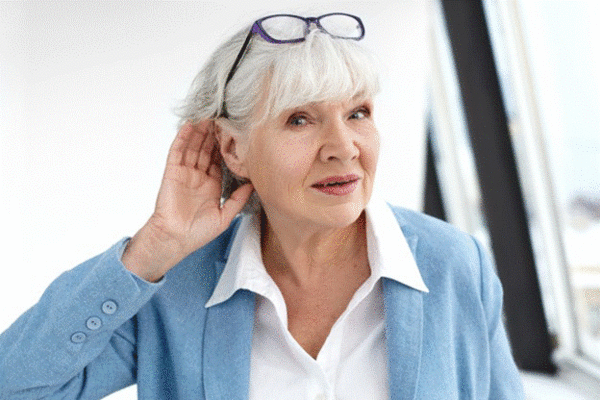
Why Does Aging Cause Hearing Loss?
As you keep getting older and older, you keep experiencing a significant number of changes in the way of the functioning of your body. Your hairs start to turn grey, your start feeling frequent pain in your back and joints. Also, your body strength seems to deteriorate gradually.
Almost 50% of adults over age 65 experience hearing loss of some degree.
Among all the problems people start facing with growing old, the hearing loss problem is one too. Hearing loss is actually one of the most common conditions you will see among older adults, which occurs due to aging. You might get surprised to know that according to the stat, almost 50% of adults over age 65 experience hearing loss of some degree.
What is Age-Related Hearing Loss?
There is actually a special term for age-related hearing loss, which is ‘presbycusis.’ And as said earlier, it is very common in older people. As they suffer from hearing loss, they face troubles in understanding speeches, follow doctor’s advice, hear phone calls, doorbells, or alarms, etc. Since things get harder to keep up with conversations with friends and family, hearing loss can lead to a feeling of isolation.
Age-related hearing loss problems mostly occur in both ears and affect them in the same way. At first, you might not even understand that you have lost some of your hearing ability, as the loss is very gradual. This gradual hearing loss can be caused by many reasons. As people age, changes happen in their inner ears, and this can cause hearing loss.
Not only this, but changes also occur in the middle ear and in the auditory nerves that carry the sound wave to the brain so that one can understand the sound. Also, there might be certain other medical conditions that might cause it, or going through certain medications can cause hearing loss too.
Our Hearing Process
To know why we suffer from hearing loss and lose our hearing ability with age, you have to first know about our hearing process. A series of events help us to hear a sound, as these events change a sound to an electrical signal that is suitable for our brain. These signals are carried to the brain by the auditory nerves through some complex steps. These steps are-
- The very first part of where the hearing system starts is the outer ear, as the sound wave enters through this part, and then travels through the ear canal, and then reaches the eardrum.
- The incoming sounds make the eardrum vibrate, and then these vibrations get transferred to three tiny bones situated in the middle ear.
- The vibrations are then sent to the Cochlea of the inner ear, after the tiny bones couple the sound vibrations to fluid vibrations. The fluid remains in the cochlea part, as it is always filled with fluid. There is an elastic partition inside the cochlea that splits the upper and lower part of it. The whole hearing structure is based on this partition called the basilar membrane.
- As the sound vibration reaches the fluid, it transfers into a traveling wave along with that base partition, and sensory, and hair cells situated on the top of the basilar membrane then carry the wave.
- The hair cells move up and down with the wave, and microscopic projections like hair perched on top of the hair cells then bump against a structure overlaid there and bend. This bending causes some pore-like channels to open up, and then different chemicals rush into the cells and create an electrical signal.
Causes of Losing Hearing Ability During Old Age
As we get older, many factors can contribute to the cause of losing hearing ability. Hearing loss can be caused by other reasons such as long-term exposure to loud noise, different genetic reasons, etc. It can be difficult at times to differentiate between age-related hearing loss problems and other hearing loss problems.
When you keep growing older, your sensory hair cells might get damaged over time. As these hair cells allow you to hear sounds, you will lose your hearing ability when they get damaged. And these cells don’t grow back, so if these cells are damaged ones, your hearing ability will be lost. As a result, you gradually lose hearing ability with age.
Common conditions seen in old people, such as diabetes, blood pressure, etc., can contribute to hearing loss too. There are medications that can contribute to it. During old age, some abnormalities can be found in the middle ear or the outer ear. The eardrum’s functions can be reduced, or the tiny bones of the middle ear can have their ability reduced too with time as a part of the abnormalities. All these can cause hearing loss during old age. Also, you should know that most old people suffer from hearing loss due to both old age and noise-induced problems that they faced throughout their whole life.
Final Words
Hearing loss can occur at any time of life, but mostly it occurs during old age. But no need to feel disheartened when you suffer from hearing loss. You can easily take measures such as using hearing aids to enhance your hearing and get on with your life. If you'd like to do a free online hearing test, please click here to get started. If you'd like to speak to someone directly about hearing aids, call this number, toll free (833) 320-1912.